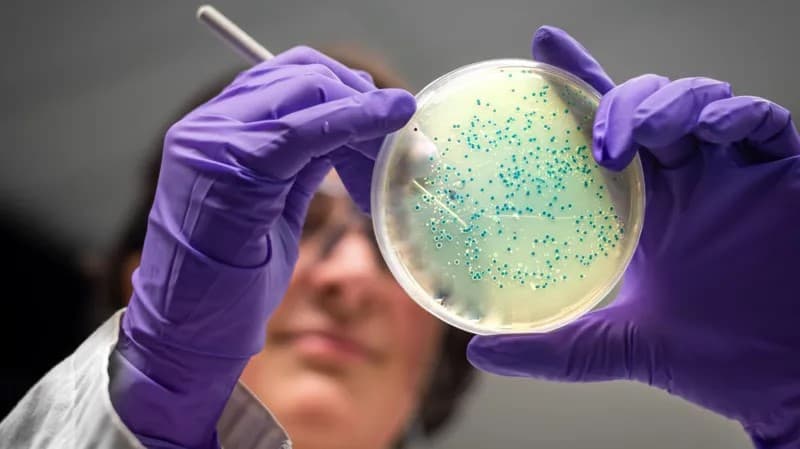AI Creates New Antibiotics for Drug-Resistant Gonorrhoea and MRSA
By Shahzaib • Aug 15, 2025

Artificial intelligence has designed two promising antibiotic candidates capable of killing drug-resistant strains of gonorrhoea and MRSA, according to scientists at the Massachusetts Institute of Technology (MIT).
These lab-made compounds—constructed atom by atom—successfully eliminated the bacteria in laboratory tests and in infected mice. Although years of refinement and clinical trials are still needed before they can be prescribed to patients, the researchers believe this breakthrough could mark the beginning of a “second golden age” in antibiotic discovery.
Antibiotics remain a critical weapon against bacterial infections, but the overuse of these drugs has helped bacteria evolve resistance, leading to more than a million deaths globally each year. New antibiotic development has been stagnant for decades.
Earlier AI projects scanned massive databases of known chemicals to spot potential antibiotic candidates. In contrast, the MIT team used generative AI to design new molecules from scratch—specifically targeting Neisseria gonorrhoeae, the bacterium that causes gonorrhoea, and MRSA (methicillin-resistant Staphylococcus aureus), a dangerous staph infection.
The AI system was trained with chemical structures of known drugs and experimental data showing their effects on different bacterial species. Using this knowledge, it learned how atomic arrangements—carbon, hydrogen, oxygen, nitrogen, and others—affect bacterial growth.
Two strategies were tested:
Searching a vast database of small molecular fragments (8–19 atoms) and building up from the most promising pieces.
Allowing the AI complete freedom to design molecules from scratch.
To avoid redundancy, the AI filtered out molecules too similar to existing antibiotics, screened for human toxicity, and excluded non-medicinal compounds.
From 36 million possibilities—many of which exist only in theory—scientists manufactured and tested the most promising designs. Two compounds proved highly effective in killing the target bacteria in lab cultures and in animal models.
Professor James Collins of MIT, one of the lead researchers, said:
“Generative AI gives us the ability to design entirely new antibiotic molecules, faster and more affordably. This could give us a real advantage in the fight against superbugs.”
Despite the excitement, experts caution that the road to approved drugs is long. Refinement work could take another one to two years, followed by extensive safety and efficacy trials in humans. Manufacturing these AI-designed molecules also poses challenges—of the top 80 candidates for gonorrhoea, only two could actually be synthesised.
Dr Andrew Edwards of Imperial College London called the study “hugely promising” but stressed that AI can’t replace the rigorous testing needed to ensure safety and effectiveness.
There’s also the economic hurdle: antibiotics are often held in reserve to slow resistance, making them less profitable to produce. As Professor Chris Dowson of the University of Warwick put it:
“We can invent new drugs, but if they’re only used sparingly, who will fund their development?”
Still, researchers see AI-driven drug design as a major leap forward in the battle against antibiotic resistance—one that could help replenish the world’s dwindling supply of effective treatments.
